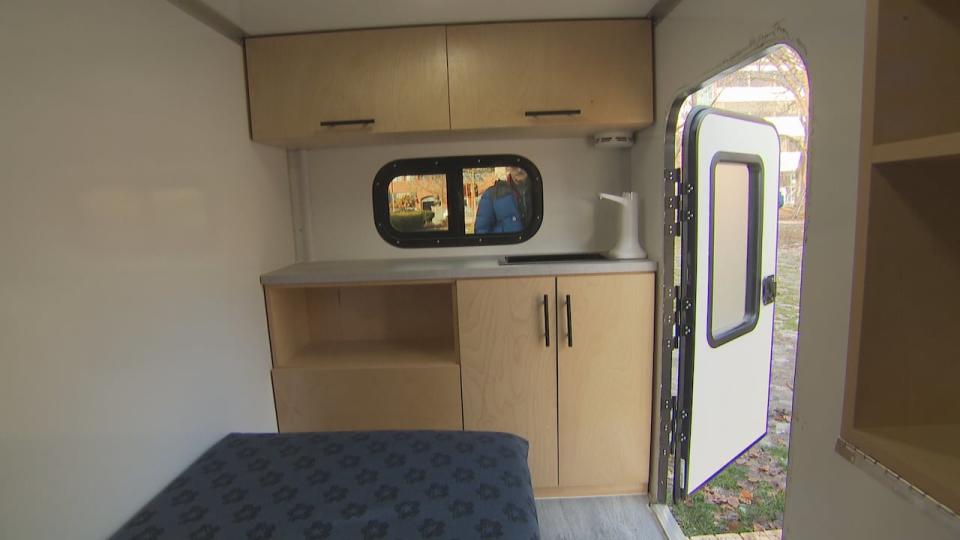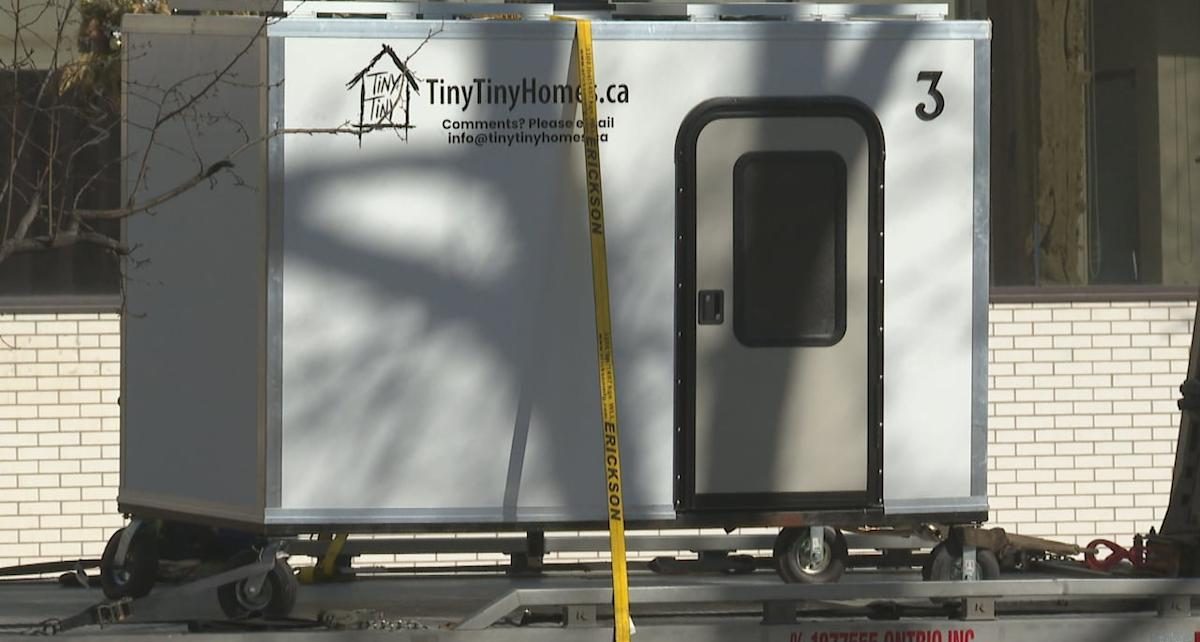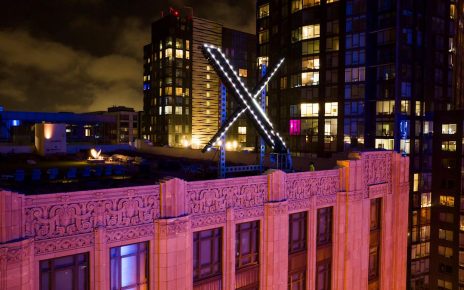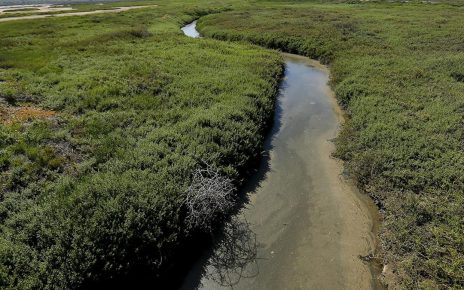A tiny mobile home has been removed from a downtown Toronto park after its occupant got an apartment of his own with funding from the city.
The removal comes after the city issued a trespass order to ensure it would not be reoccupied after the man moved out.
Ryan Donais, founder of Tiny Tiny Homes, a not-for-profit organization, said the small modular home was the second one to be removed from St. James Park, near King Street E. and Jarvis Street. Originally, five were in the park to give temporary relief during the winter months to unhoused people, providing a transition between tents and housing. Three units remain.
Donais said the occupant of the home being removed, whom he called Brent, has now moved into permanent housing.
“This is a super exciting day,” Donas said on Tuesday after the tiny mobile home was loaded onto a tow truck on the street.
“These were always meant to be transitional. They were not meant to be permanent. They were meant to transition people into housing. Now that that’s done, we’re removing the unit and we can start on our next leg of the journey.”
City had called installation of homes ‘unlawful’
In early February, city lawyers issued a cease and desist letter to Donais, asking him to remove all of the tiny mobile homes from the park, saying the installation and occupancy of the homes was “unlawful” and interfered with the city’s rights of ownership.
Ryan Donais build his first tiny mobile home this summer, and has now built three homes — one of which is pictured behind him — that can act as temporary shelters for those experiencing homelessness.
Ryan Donais, founder of Tiny Tiny Homes, a non-profit organization, says unhoused people need shelter in Toronto and the city clearly has a shortage of shelter beds. (Saeed Dehghani/CBC)
Donais said he is not planning to install any more tiny mobile homes in city parks and is working with the city to find housing for the remaining three occupants. He added that unhoused people need shelter in Toronto and the city clearly has a shortage of shelter beds.
“We got no problem with moving the units. But the people need places to go. So we just need to make sure that everyone has a place to go and then we’re more than willing to remove the units,” he said.
Donais also says he is working on a new initiative where the tiny mobile homes would be placed on private land.
“We do intend in the future to start a private location and continue the work with tiny homes. The system is much in need of additional beds. We all know there’s a shortfall of beds for people to stay, so we intend to keep adding beds to the system,” he said.
Each of the units costs about $10,000 in materials and has electricity, heat, running water and a bed, as well as safety features such as smoke and carbon monoxide detectors and a fire extinguisher.
‘Enhanced outreach model’ coming this month: city
In an email on Tuesday, the city said its Streets to Homes staff worked with Donais to move the man who was living in the tiny mobile home with the help of the Canada-Ontario Housing Benefit, which enables the city to help people experiencing homelessness secure permanent housing.

Each home built by Donais has heat, electricity and running water, plus safety features including a smoke detector and carbon monoxide alarm.
Each home built by Ryan Donais has heat, electricity and running water, plus safety features including a smoke detector and carbon monoxide alarm. (Saeed Dehghani/CBC)
“Staff continue to work with the individuals who remain at St. James Park to help connect them to shelter, housing and supports,” Elise von Scheel, spokesperson for the city, said in an email on Tuesday.
This month, Von Scheel said, the city will implement what it calls its “enhanced outreach model,” which means city staff will bring social and health services to the park, provide security around the clock and remove debris from the green space daily.
“In alignment with City bylaws and the Interdivisional Protocol for Encampments, the remaining Tiny Tiny Homes structures will be removed as people in them successfully move indoors,” she said.
The removal comes after Toronto Mayor Olivia Chow intervened in the dispute between Donais and the city following the cease and desist letter in February. Chow had promised that none of his structures would be removed from the park “in the near future.”
A total of 11,721 people were actively homeless in Toronto in the last three months, according to the city’s own data. A total of 10,393 people used the city’s homeless shelter system on Monday night. And an average of 101 people nightly were turned away from city shelters in February, the data shows.
As of March 14, there were 283 tents in encampments across Toronto, according to an administrative inquiry provided by city staff to council last week.




